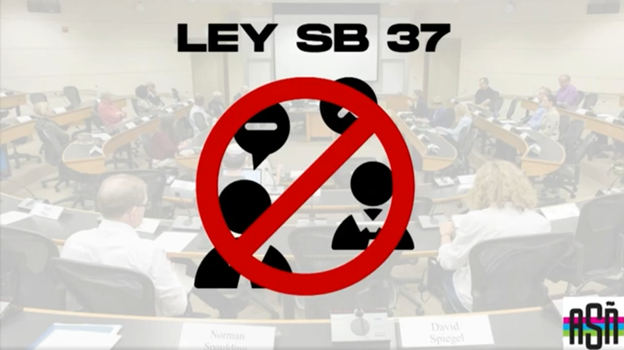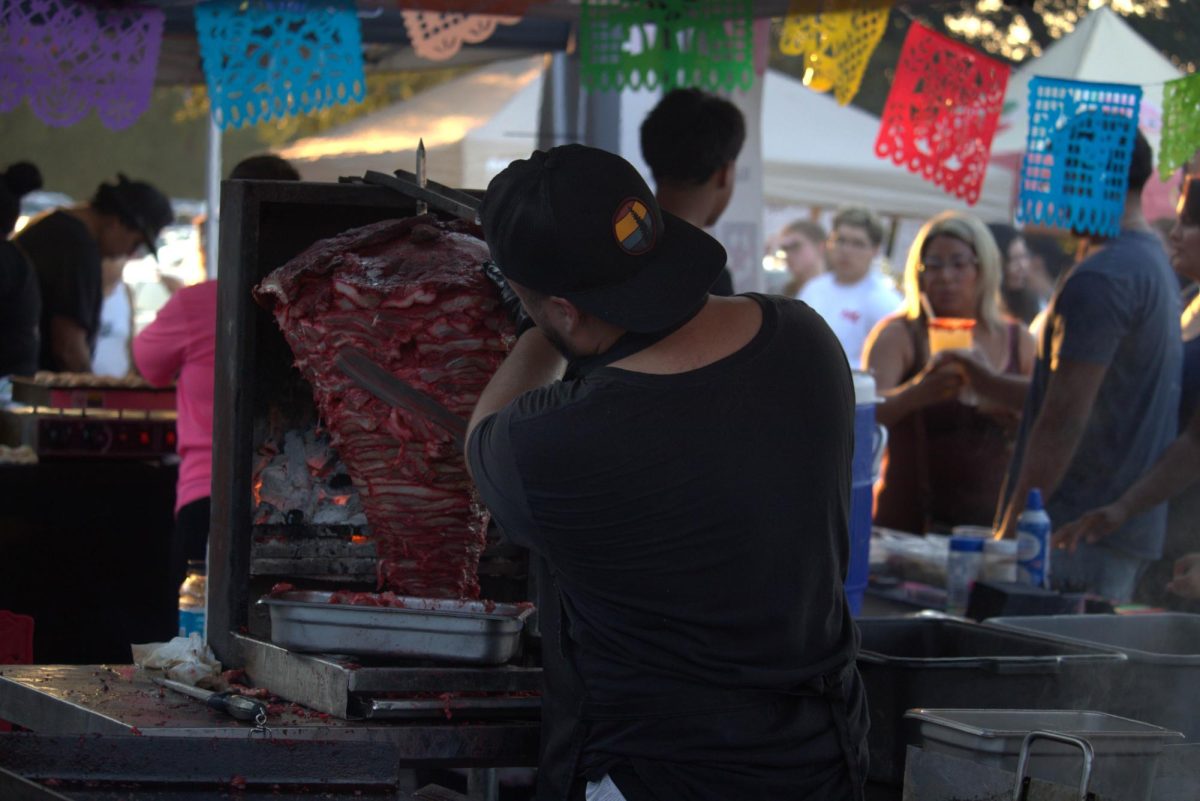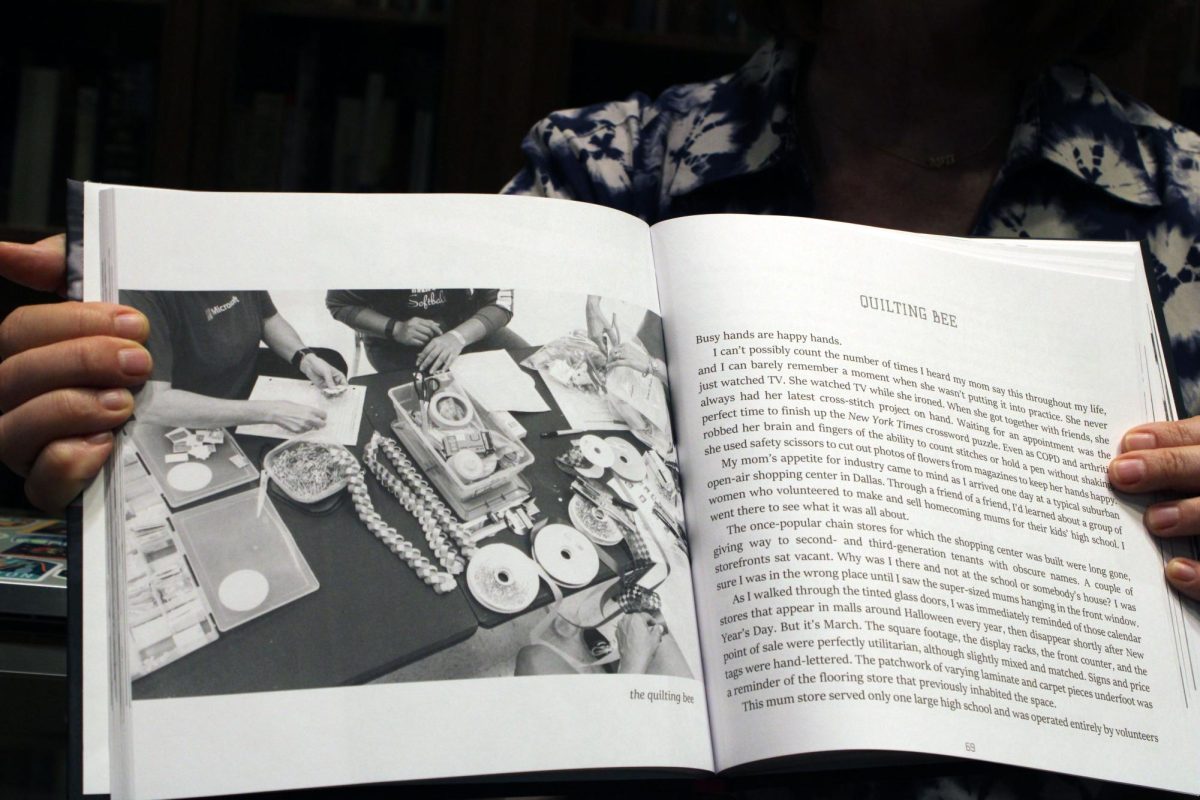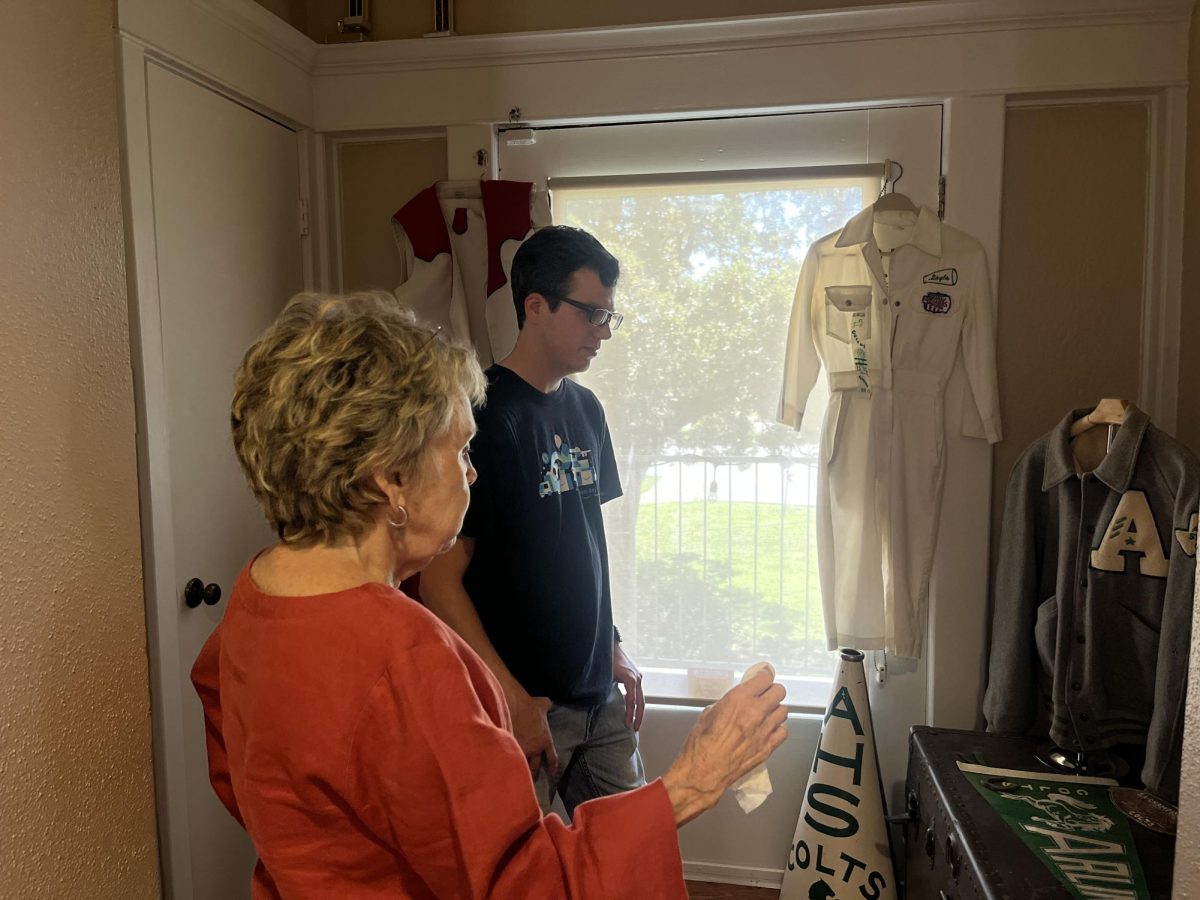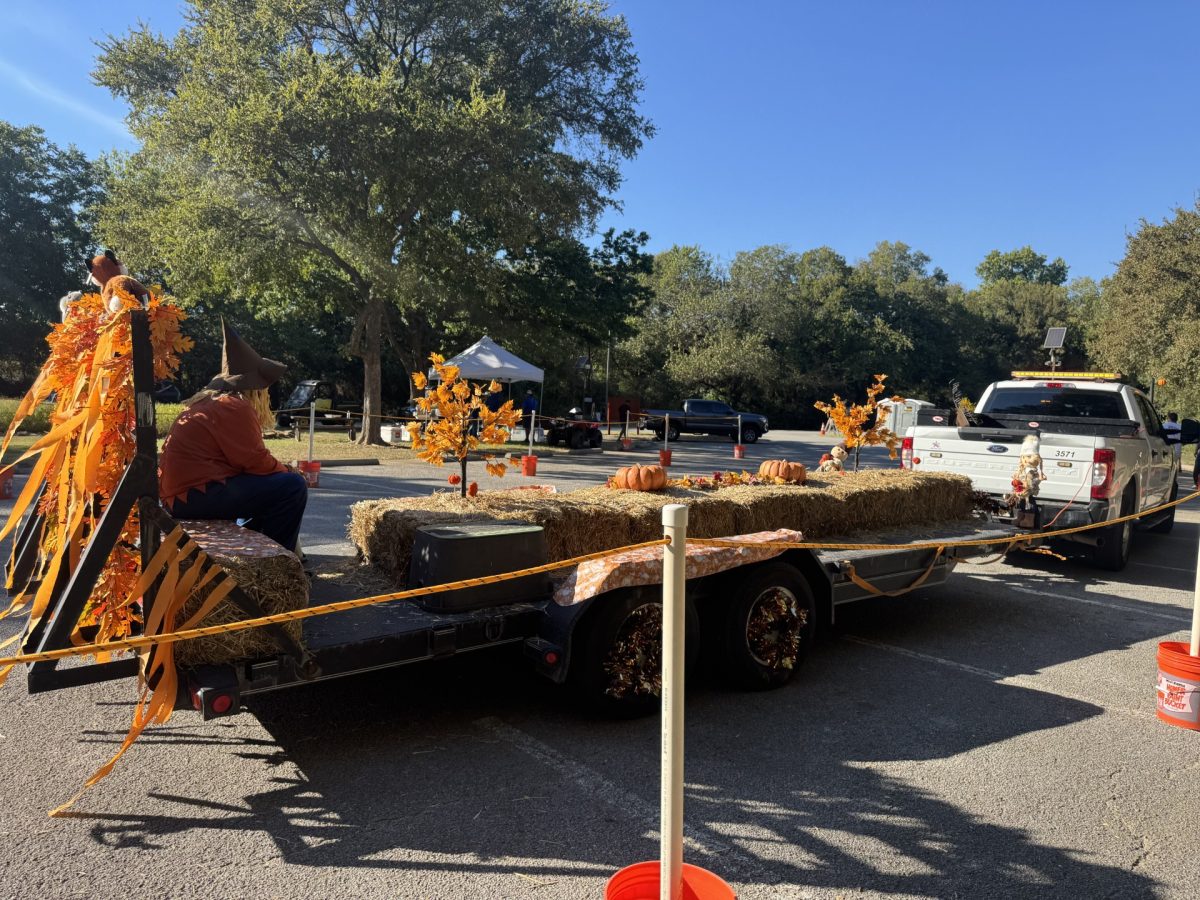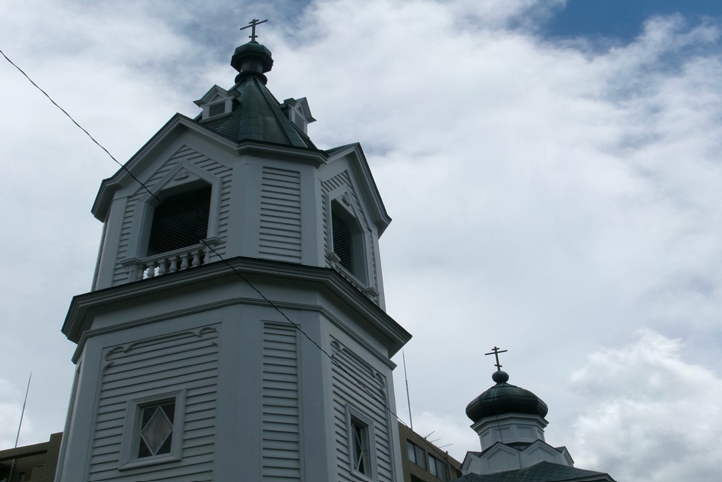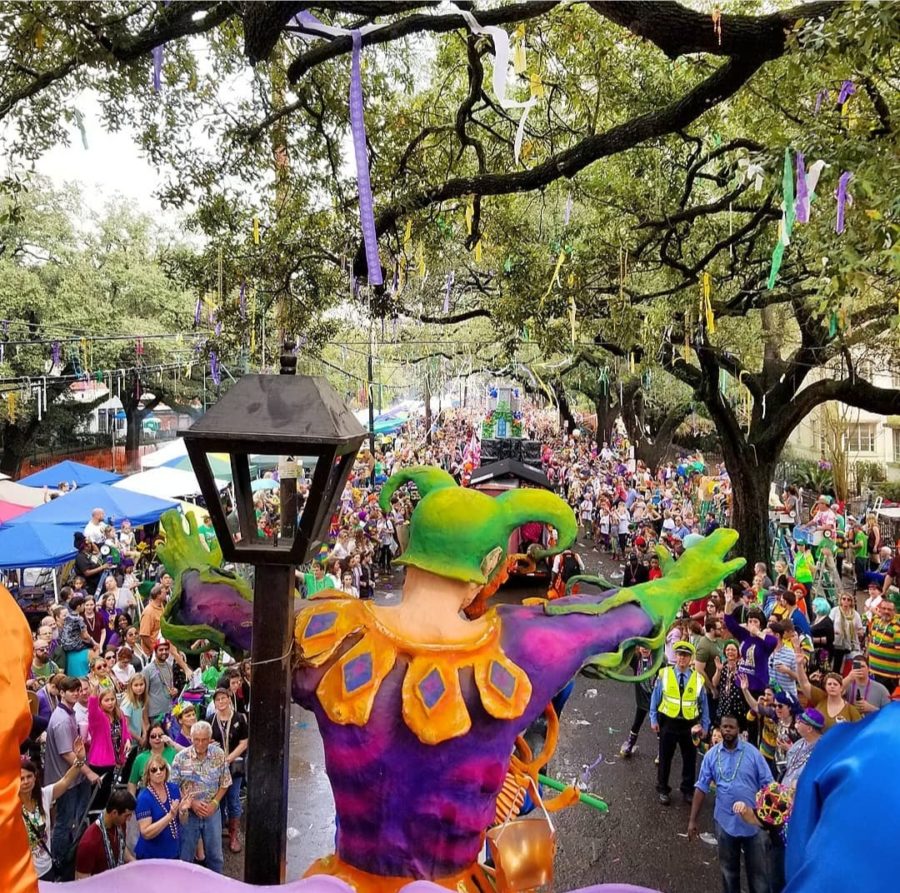Mardi Gras sticks to your belly, and soul
The view from a Mardi Gras float as it rolls down St. Charles Avenue in New Orleans.
May 16, 2022
GRAPEVINE, Texas – The day before Ash Wednesday, known as Fat Tuesday or Mardi Gras, is an important time of festivity and celebration in Louisiana.
My mom, Valerie Funicella, was a resident of Louisiana most of her life, and she grew up fully immersed in the rich culture of the state.
“Mardi Gras is technically the day before Ash Wednesday, and on Ash Wednesday, everybody gives up things for lent, and it is kind of a time of penance and sadness,” she said. “But Mardi Gras, the day before that, is the end of the carnival season.”
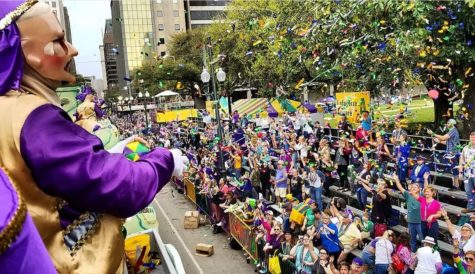
During carnival season the city of New Orleans erupts into festivities and parties, becoming the active heart of the festivities in Louisiana.
“It makes you kind of homesick when you’re not around it,” Funicella said.
My mom grew up in Lake Charles, Louisiana, and experienced many Mardi Gras parades, both there and in New Orleans. New Orleans famously has what are called krewes, which are basically societies of people who plan all year for their floats, parades and their court. In some ways, it is kind of like a homecoming court. Families that are involved in the krewes oftentimes have had a long history of being involved in Mardi Gras. The krewes raise money for the parades, and New Orleans has some of the most active krewes and largest parades.
In places that celebrate Mardi Gras, there is a longstanding tradition of trying to remove all the fattening ingredients from the kitchen before Lent so as not to be tempted by them later. The carnival season is filled with a celebratory last hurrah of the kitchen before the beginning of Ash Wednesday and Lent. This is where the tradition of making a king cake comes from.
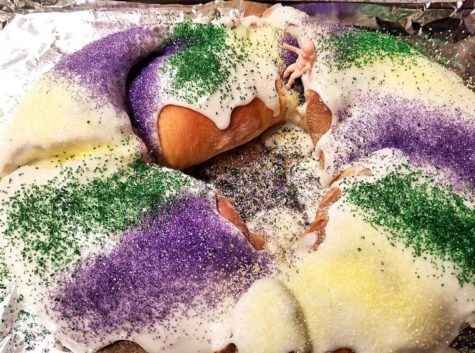
The tradition of King Cakes is believed to have been brought to New Orleans by France in around 1870. The custom dates back to old world Europe, mainly in France and Spain, and the kings were meant to honor the biblical three kings who visited Jesus at his birth. Having a small baby Jesus doll within the cake is also a common Mardi Gras tradition. It is tradition that whoever ends up finding the baby must buy the next king cake, and oftentimes host the next party.



